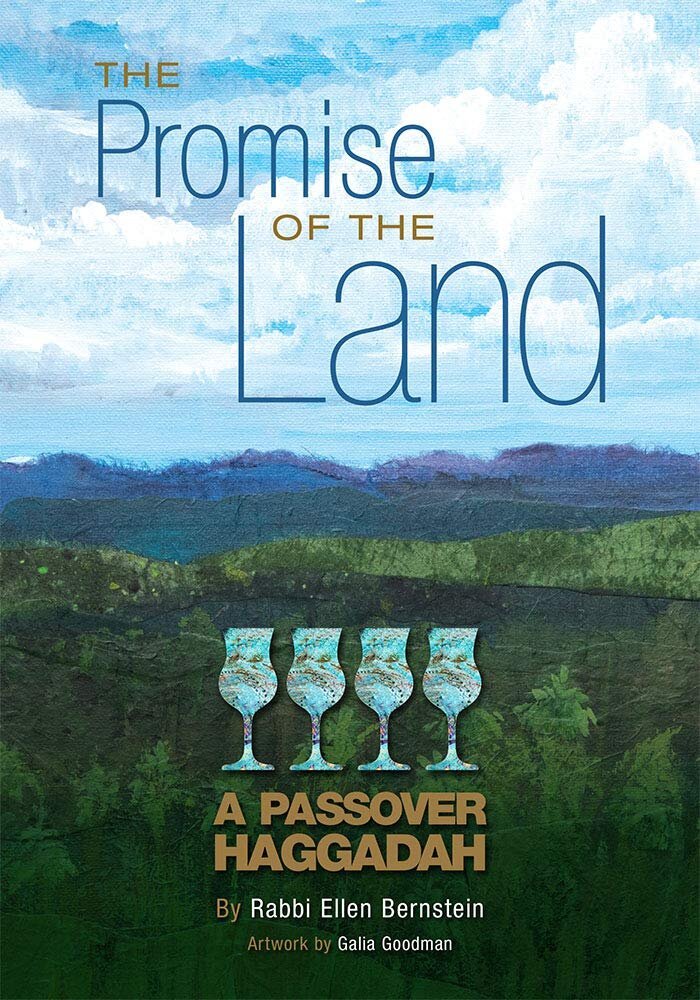Ellen Bernstein has given the Jewish world a precious gift by reweaving the story of our peoples’ liberation from Egypt back into Judaism’s cosmic story of creation. This haggadah will engage and delight everyone: young and old, secular and religious, the knowledgeable and the new-comer.
—Rabbi David Ingbar, Founder, Rabbi, Rommemu, NYC
A revelation! The Promise of the Land takes us on a journey from the narrowness of Egypt to the spaciousness of Gaia, teaching us the true meaning of freedom.
Rabbi Rami Shapiro, Surrendered, The Sacred Art
Learn More:
Why a New Haggadah for Passover?
On Passover we tell the story of the Jewish people’s journey from slavery to freedom. Yet, for every story about peoplehood, there is a backstory about land and the natural world. All our biblical holidays commemorate the harvest and the land, the very soil out of which Judaism grew. The haggadah, the Jewish people’s origin story, is necessarily embedded in an earthy reality.
Today, we know that our well-being and our freedom depend on the earth’s well-being. If the earth and its systems are compromised, our freedom is compromised; life is compromised. This haggadah seeks to enlarge our focus. It seeks to reveal the seder’s ecological dimensions and awaken its quiescent environmental meaning.
What is the Promise of the Land?
Land is the most precious blessing a people can receive. The promise of the land is the promise of life, the promise of freedom. The promise of the land also refers to the promise made to the Israelite ancestors: we would live freely in relationship with a land and have agency over our own lives. The land would never be ours to own because only God owns the land. That the Hebrew word eretz means not just “land” but also “earth” conveys a profound ecological sense.
How is this Haggadah Different from other Haggadot?
This haggadah is traditional in some ways and modern in others. It follows the ancient instructions for Passover to read the entire passage that begins “My father was a wandering Aramean,” which recaps Judaism’s origin story. Curiously, the very first haggadah, composed hundreds of years after the instructions for the seder were written down, never actually cited the whole passage. The early rabbis dropped the last two verses about land. These deleted verses transmit a deep ecological message. This haggadah retrieves these verses, reestablishing them at the heart of the seder, restoring the environmental significance of Judaism’s central story.
Who is this Haggadah for?
This haggadah is intended for those who are curious and want to dig deep. It understands the Passover story in universal and mythic terms. It is written for people with little or no Jewish background as well as those with strong backgrounds—be they religious, spiritual, or secular. It aspires to reconnect participants to the beauty of the holiday and the world, while exploring essential questions about who we are and where we come from.
Earth Seders
Since the publication of The Promise of the Land, hundreds of individuals and communities have eagerly adopted this haggadah for their Passover seders to help orient their hearts, minds and energies toward each other and the earth. We call these seders Earth Seders. Earth Seders not only connect us to the earth; they serve people everywhere on the earth. Please click on the image and enjoy the Zoom Earth Seder 2021 celebrated with 250 guests from around the world.


